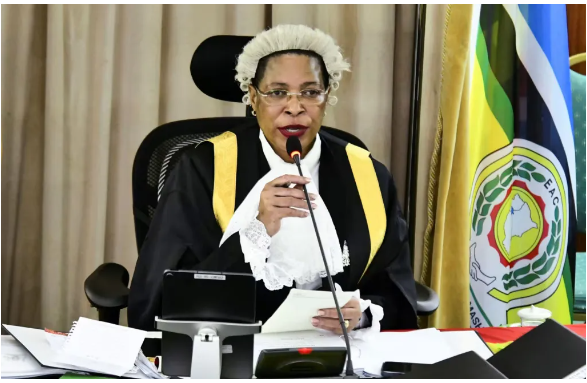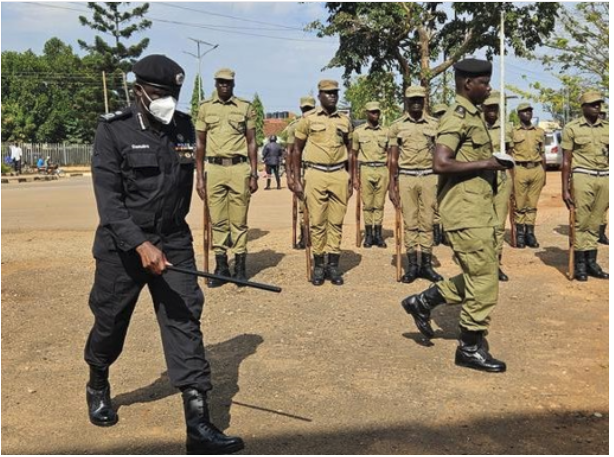 In a significant diplomatic move, the United States government has imposed travel bans on four senior Ugandan police officials, barring them from entering the country. The decision is part of the U.S. commitment to promote accountability for individuals involved in human rights abuses and to combat impunity within institutions of power.
In a significant diplomatic move, the United States government has imposed travel bans on four senior Ugandan police officials, barring them from entering the country. The decision is part of the U.S. commitment to promote accountability for individuals involved in human rights abuses and to combat impunity within institutions of power.
This ban comes amid growing concerns about the human rights situation in Uganda, particularly around the actions of its security forces. Uganda has faced intense scrutiny over its handling of dissent, opposition figures, and the civil rights of its citizens, particularly in the wake of the 2021 general elections. Numerous reports have pointed to widespread violations, including the arbitrary detention, torture, and extrajudicial killings of political opponents and activists by security forces, including the Uganda Police Force.
Human rights groups such as Amnesty International and Human Rights Watch have repeatedly highlighted abuses carried out under the pretext of maintaining public order. These actions have often been directed against opposition leaders, most notably Robert Kyagulanyi, known as Bobi Wine, who ran against President Yoweri Museveni in the 2021 presidential elections.
In response to these allegations, the U.S. State Department announced the travel bans as part of its broader strategy to pressure the Ugandan government to uphold human rights and democratic values.
While the State Department has not officially released the names of the four officials, sources familiar with the matter suggest that these individuals have played key roles in orchestrating and overseeing the alleged abuses. Their roles in the police force have been central in enforcing crackdowns on opposition rallies and in operations that have targeted journalists, activists, and ordinary citizens.

These four officials are believed to be part of a broader network of senior security personnel who have been instrumental in the government’s sustained efforts to silence critics, particularly during politically sensitive periods. The U.S. government’s action is seen as a direct message that involvement in such violations will come with international consequences.
The U.S. has had a long-standing partnership with Uganda, particularly in areas such as counterterrorism, health, and regional stability in East Africa. However, the relationship has been strained in recent years due to concerns over Uganda’s deteriorating human rights record. The Trump administration had previously imposed visa restrictions on several Ugandan officials in 2021, citing election-related violence and intimidation.
The Biden administration has continued this pressure, signaling its intention to uphold democratic norms and values across the globe. In a statement, U.S. Secretary of State Antony Blinken reiterated that “respect for human rights and democratic principles remains central to U.S. foreign policy.” He added that those who engage in or enable human rights violations would face consequences, including travel restrictions and other potential sanctions.
While the travel ban is a targeted measure aimed at individuals, it may have broader implications for Uganda-U.S. relations. Uganda has long been a key security partner in the region, particularly in countering the spread of extremism in the Horn of Africa. However, Washington’s increasing focus on human rights may shift the dynamics of the relationship.
Critics argue that Uganda has become more repressive under President Museveni, who has been in power since 1986. His government’s actions, especially around elections, have raised alarms internationally, and this travel ban further underscores the international community’s frustration.
The move is also likely to have a ripple effect on Uganda’s international standing. Similar actions by other Western countries could follow, which may affect Uganda’s foreign relations and its access to development aid. While sanctions and travel bans often face resistance from the targeted governments, they send a strong symbolic message about the international community’s disapproval.
As of now, the Ugandan government has not issued an official response to the travel bans. However, Uganda’s security and government officials have previously dismissed such actions as interference in their country’s internal affairs. They have often accused the U.S. and other Western countries of attempting to undermine Uganda’s sovereignty, particularly in matters of security and law enforcement.
President Museveni has consistently defended the actions of his security forces, arguing that they are necessary to maintain stability and security in the country. His government has framed its crackdown on opposition groups and protests as essential measures to protect national security and prevent unrest.
The U.S. travel ban is part of a broader international effort to pressure Uganda to improve its human rights record. In addition to targeted sanctions, various human rights groups and international bodies have called for comprehensive investigations into the abuses committed by Uganda’s security forces.
Moving forward, it remains to be seen whether these diplomatic and legal pressures will result in any substantive changes within Uganda’s police force and broader security apparatus. For now, the travel ban sends a clear message to Uganda’s leadership: the world is watching, and there will be consequences for human rights abuses.
As Uganda navigates its future, its actions on the domestic front will be under intense scrutiny, not only from its own citizens but also from the international community. The decision by the U.S. to ban these four police officials may only be the beginning of a broader wave of accountability efforts.
Ennywealth


